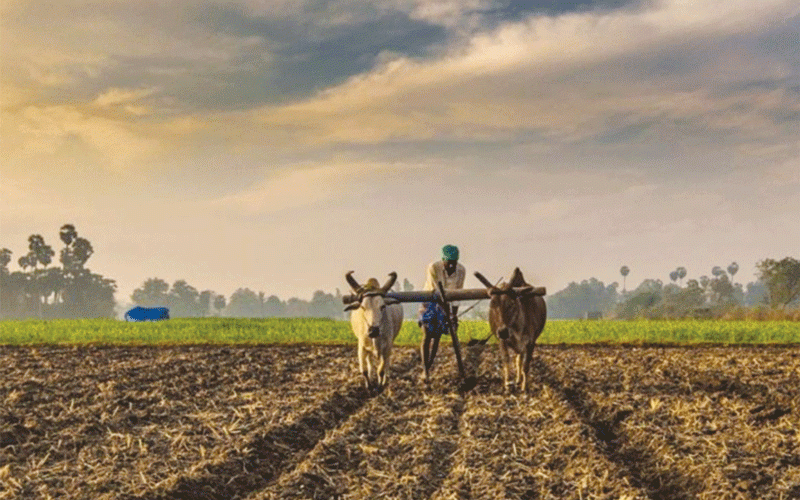
DECOLONISING public procurement by governments and development organisations will improve consumer access to diverse and healthy diets, while also increasing incomes of smallholder farmers.
In such countries as Zimbabwe, government institutions like colleges, schools and hospitals cannot buy food directly from farmers. These formal institutions have to buy food through companies registered under the Procurement Regulatory Authority of Zimbabwe (Praz). Companies registered under Praz should also have a legal status dictated by the colonial Companies Act.
Consistent with the colonial way of registering companies, such companies have to provide a tax clearance certificate and documents such as CR6, CR14 and many others.
Given that company registration services are only provided in cities, smallholder farmers in rural areas who want to register a company have to travel hundreds of kilometres to the nearest city where some of the requirements include information like physical address, not the address of a nearest school through which rural farmers still receive their letters by post.
Since the CR14 should have names of company directors, it means no matter how successful, a farmer cannot register a company as an individual. The Companies Act is blind to the fact that, just like some gifted scientists, some farmers can do better alone. That is why every community has a hurudza (master farmer).
Incentivising and formalising middlemen
By coercing every formal institution to procure food through registered companies, government procurement procedures incentivise some of the most greedy middlemen who reap off farmers. Such middlemen know their way around company registration processes, taxation processes and hang around corridors of power. Smallholder farmers cannot do such a thing due to several challenges that include marginalisation from the city and long distance to markets.
Because it is designed and suitable for marketing commercially-produced food like maize meal, sugar and imported rice, public procurement does not create room for diverse indigenous commodities produced by smallholder farmers in agro-ecological ways that heal the environment, soils, water and the entire ecosystem.
- Combating corruption in public procurement
- Beitbridge border post ‘dumps’ Zimdollar
- Praz red flags procurement loopholes
- Time to decolinise procurement processes
Keep Reading
Assuming they try to meet existing stringent procurement processes, smallholder farmers are currently not able to sell their naturally grown small grains, vegetables, indigenous chickens, organic honey and organic milk. It also means, consumers are denied healthy food and exposed to harmful food full of chemicals.
A recent study by eMKambo revealed the extent to which demand for indigenous food is increasing in households and formal institutions like universities in Zimbabwe, but lack of integration into government food procurement processes continues to prevent indigenous food from becoming mainstream food for the majority.
Even if neighbouring farming communities produce the most healthy small grains, eggs, fish, milk, chickens and other foods, a boarding school or college will not buy from the community due to procurement regulations which say schools should buy from registered suppliers. In fact, the school has to collect quotations from at least three registered companies before deciding on who to buy food.
In the absence of a company or a supermarket, schools and colleges have to procure food like grains from a parastatal like the Grain Marketing Board which is also another big middleman between farmers and consumers.
Procurement regulations in development agencies
Governments are not the only sources of procurement barriers that prevent smallholder farmers from earning decent incomes from food production. Farming communities that try to sell commodities to big organisations like the World Food Programme (WFP) have mentioned how they have to contend with more stringent procurement regulations.
For instance, in addition to owning a company, new suppliers are encouraged to submit their registration through the United Nations Global Marketplace (UNGM) portal. Farmers in Mwenezi, Tsholotsho or any other rural community where internet connectivity and digital literacy is a far-fetched dream are automatically excluded from supplying even if they may have the best quality food.
A company will only supply after the WFP is convinced of the company’s experience, ability to perform and its financial soundness. There is no way a rural farming community’s financial soundness can be ascertained unless it has a financial track record through banks.
Unfortunately, most banks no longer have branches in rural areas, preferring to have a presence in the city. For instance in Zimbabwe, the only vibrant financial institution found at growth points like Gokwe and Mupandawana is Mukuru, a foreign currency money transfer agent.
Why would an organisation whose main role is ensuring global food availability introduce huge barriers that prevent smallholder farmers from participating in ready and profitable institutional markets? No wonder, the majority of African smallholder farmers and consumers frequent mass food markets where, besides diversity of commodities, barriers to entry and exit include everyone.
Building a better world through the market
Achieving an equitable global market which benefits the poor smallholder farmers, while enabling healthy diverse foods, can only happen if colonial procurement regulations are dismantled and replaced with genuine easy of doing business regulations that support local thriving economies.
With enough political will, African governments can introduce procurement regulations and procedures in favour of indigenous food like pearl millet, yams, indigenous poultry and many others on which the majority depend for income, nutrition, dignity and identity.
Charles Dhewa is a proactive knowledge broker and management specialist. He writes here in his personal capacity










